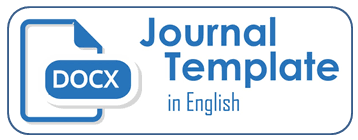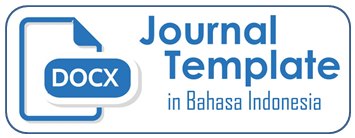KEBIJAKAN PAJAK KARBON TERHADAP REAKSI PASAR: STUDI DI BURSA EFEK INDONESIA
DOI:
https://doi.org/10.26486/jramb.v10i1.3586Abstract
Studi ini meneliti reaksi pasar Indonesia terhadap kebijakan pajak karbon. Kebijakan ini dilakukan pemerintah sebagai langkah dalam merespon isu pemanasan global. Studi ini mencoba menjelaskan mengenai dampak dari kebijakan pengurangan karbon terhadap reaksi investor. Penelitian ini merupakan penelitian studi peristiwa dengan populasi penelitian semua perusahaan yang terdaftar di Bursa Efek Indonesia pada tanggal 7 Oktober 2021. Data diambil dari Yahoo Finance dan IDX dengan jumlah sebanyak 753 perusahaan. Metode sampel yang digunakan adalah metode purposive sampling dengan sampel berupa indeks Kompas 100 dan masing-masing sektor perusahaan yang terdaftar di Bursa Efek Indonesia dengan jumlah 9 sektor dengan periode pengamatan 11 hari (-5,5), 7 hari (-3,3), dan 3 hari (-1,1). Pengujian dilakukan menggunakan Single Index Model dan Historical Mean Model menunjukkan bahwa pasar bereaksi terhadap kebijakan karbon (p-value <0,05). Perusahaan sektor pertambangan, industri barang konsumsi, dan agrikultur menjadi perusahaan yang paling berekasi sedangkan sektor keuangan dan perbankan tidak terjadi reaksi. Kebijakan pajak karbon berdampak pada reaksi investor terhadap Bursa Efek Indonesia.
References
Alsaifi, K., Elnahass, M., & Salama, A. (2020a). Market responses to firms’ voluntary carbon disclosure: Empirical evidence from the United Kingdom. Journal of Cleaner Production, 262, 121377. https://doi.org/10.1016/J.JCLEPRO.2020.121377
Alsaifi, K., Elnahass, M., & Salama, A. (2020b). Market responses to firms’ voluntary carbon disclosure: Empirical evidence from the United Kingdom. Journal of Cleaner Production, 262, 121377. https://doi.org/10.1016/J.JCLEPRO.2020.121377
Anastasiou, D., Ballis, A., & Drakos, K. (2022). Constructing a positive sentiment index for COVID-19: Evidence from G20 stock markets. International Review of Financial Analysis, 81, 102111. https://doi.org/10.1016/J.IRFA.2022.102111
Anderson-Weir, C. H. (2010). How Does the Stock Market React to Corporate Environmental How Does the Stock Market React to Corporate Environmental News? News? How Does the Stock Market React to Corporate Environmental News? How Does the Stock Market React to Corporate Environmental News? Undergraduate Economic Review, 6(1). https://digitalcommons.iwu.edu/uer
Asmaranti, Y., & Lindrianasari. (2018). Pengaruh Pengungkapan Emisi Karbon Terhadap Reaksi Investor Dengan Kinerja Lingkungan Sebagai Variabel Moderasi. Seminar Nasional Fakultas Ekonomi Dan Bisnis Universitas Lampung, 234–243.
Brigham, E. F., & Houston, J. F. (2014). Dasar-Dasar Manajemen Keuangan. Salemba Empat.
Chen, K. H., Lai, T. L., Liu, Q., & Wang, C. (2022). Beyond the blockchain announcement: Signaling credibility and market reaction. International Review of Financial Analysis, 82, 102209. https://doi.org/10.1016/J.IRFA.2022.102209
Choi, J. K., Bakshi, B. R., & Haab, T. (2010a). Effects of a carbon price in the U.S. on economic sectors, resource use, and emissions: An input–output approach. Energy Policy, 38(7), 3527–3536. https://doi.org/10.1016/J.ENPOL.2010.02.029
Choi, J. K., Bakshi, B. R., & Haab, T. (2010b). Effects of a carbon price in the U.S. on economic sectors, resource use, and emissions: An input–output approach. Energy Policy, 38(7), 3527–3536. https://doi.org/10.1016/J.ENPOL.2010.02.029
Comyns, B. (2016). Determinants of GHG Reporting: An Analysis of Global Oil and Gas Companies. Journal of Business Ethics, 136(2), 349–369. https://doi.org/10.1007/s10551-014-2517-9
Conefrey, T., Fitz Gerald, J. D., Valeri, L. M., & Tol, R. S. J. (2013a). The impact of a carbon tax on economic growth and carbon dioxide emissions in Ireland. Journal of Environmental Planning and Management, 56(7), 934–952. https://doi.org/10.1080/09640568.2012.709467
Conefrey, T., Fitz Gerald, J. D., Valeri, L. M., & Tol, R. S. J. (2013b). The impact of a carbon tax on economic growth and carbon dioxide emissions in Ireland. Journal of Environmental Planning and Management, 56(7), 934–952. https://doi.org/10.1080/09640568.2012.709467
Daddi, T., Todaro, N. M., De Giacomo, M. R., & Frey, M. (2018). A Systematic Review of the Use of Organization and Management Theories in Climate Change Studies. Business Strategy and the Environment, 27(4), 456–474. https://doi.org/https://doi.org/10.1002/bse.2015
Deák, Z., & Karali, B. (2014). Stock Market Reactions to Environmental News in the Food Industry. Journal of Agricultural and Applied Economics, 46(2), 209–225. https://doi.org/10.1017/S1074070800000742
Deegan, C. (2002). Introduction: the legitimising effect of social and environmental disclosures-a theoretical foundation. Accounting, Auditing & Accountability Journal, 15(3), 282–311. https://doi.org/10.1108/09513570210435852
Derwall, J., Guenster, N., Bauer, R., & Koedijk, K. (2005a). The Eco-Efficiency Premium Puzzle. Financial Analysts Journal, 61(2), 51–63. http://www.jstor.org/stable/4480656
Derwall, J., Guenster, N., Bauer, R., & Koedijk, K. (2005b). The Eco-Efficiency Premium Puzzle. Financial Analysts Journal, 61(2), 51–63. http://www.jstor.org/stable/4480656
Dowell, G., Hart, S., & Yeung, B. (2000). Do Corporate Global Environmental Standards Create or Destroy Market Value? Management Science, 46(8), 1059–1074. https://doi.org/10.1287/mnsc.46.8.1059.12030
Ghozali, I. (2018). Aplikasi Analisis Multivariate dengan Program IBM SPSS 25. Badan Penerbit Universitas Diponegoro.
Grand, M. C., & D’Elia, V. V. (2005). Environmental news and stock markets performance: further evidence for Argentina.
Hahn, R., Reimsbach, D., & Schiemann, F. (2015). Organizations, Climate Change, and Transparency: Reviewing the Literature on Carbon Disclosure. Organization & Environment, 28(1), 80–102. https://doi.org/10.1177/1086026615575542
Haque, F. (2017). The effects of board characteristics and sustainable compensation policy on carbon performance of UK firms. The British Accounting Review, 49(3), 347–364. https://doi.org/10.1016/J.BAR.2017.01.001
Hartono, J. (2017). Teori Portofolion dan Analisis Investasi. BPFE.
Healy, P. M., & Palepu, K. G. (2001). Information asymmetry, corporate disclosure, and the capital markets: A review of the empirical disclosure literature. Journal of Accounting and Economics, 31(1), 405–440. https://doi.org/https://doi.org/10.1016/S0165-4101(01)00018-0
Helfaya, A., Whittington, M., & Alawattage, C. (2019). Exploring the quality of corporate environmental reporting. Accounting, Auditing & Accountability Journal, 32(1), 163–193. https://doi.org/10.1108/AAAJ-04-2015-2023
Jain, P. K., & Rezaee, Z. (2006). The Sarbanes-Oxley Act of 2002 and Capital-Market Behavior: Early Evidence*. Contemporary Accounting Research, 23(3), 629–654. https://doi.org/https://doi.org/10.1506/2GWA-MBPJ-L35D-C4K6
Klassen, R. D., & McLaughlin, C. P. (1996). The Impact of Environmental Management on Firm Performance. Management Science, 42(8), 1199–1214. https://doi.org/10.1287/mnsc.42.8.1199
Konar, S., & Cohen, M. A. (1997). Information As Regulation: The Effect of Community Right to Know Laws on Toxic Emissions. Journal of Environmental Economics and Management, 32(1), 109–124. https://doi.org/https://doi.org/10.1006/jeem.1996.0955
Korten, D. C. (1998). When corporations rule the world. European Business Review, 98(1). https://doi.org/10.1108/ebr.1998.05498aab.007
Lee, S.-Y., Park, Y.-S., & Klassen, R. D. (2015). Market Responses to Firms’ Voluntary Climate Change Information Disclosure and Carbon Communication. Corporate Social Responsibility and Environmental Management, 22(1), 1–12. https://doi.org/https://doi.org/10.1002/csr.1321
Liesen, A., Hoepner, A. G., Patten, D. M., & Figge, F. (2015). Does stakeholder pressure influence corporate GHG emissions reporting? Empirical evidence from Europe. Accounting, Auditing & Accountability Journal, 28(7), 1047–1074. https://doi.org/10.1108/AAAJ-12-2013-1547
Liu, X., & Anbumozhi, V. (2009). Determinant factors of corporate environmental information disclosure: an empirical study of Chinese listed companies. Journal of Cleaner Production, 17(6), 593–600. https://doi.org/https://doi.org/10.1016/j.jclepro.2008.10.001
Luo, L., Lan, Y.-C., & Tang, Q. (2012). Corporate Incentives to Disclose Carbon Information: Evidence from the CDP Global 500 Report. Journal of International Financial Management & Accounting, 23(2), 93–120. https://doi.org/https://doi.org/10.1111/j.1467-646X.2012.01055.x
MacKinlay, A. C. (1997). Event Studies in Economics and Finance. Journal of Economic Literature, 35(1), 13–39. http://www.jstor.org/stable/2729691
Murray, B., & Rivers, N. (2015a). British Columbia’s revenue-neutral carbon tax: A review of the latest “grand experiment” in environmental policy. Energy Policy, 86, 674–683. https://doi.org/10.1016/J.ENPOL.2015.08.011
Murray, B., & Rivers, N. (2015b). British Columbia’s revenue-neutral carbon tax: A review of the latest “grand experiment” in environmental policy. Energy Policy, 86, 674–683. https://doi.org/10.1016/J.ENPOL.2015.08.011
Peng, P., Zhu, L., & Fan, Y. (2017a). Performance evaluation of climate policies in China: A study based on an integrated assessment model. Journal of Cleaner Production, 164, 1068–1080. https://doi.org/10.1016/J.JCLEPRO.2017.07.016
Peng, P., Zhu, L., & Fan, Y. (2017b). Performance evaluation of climate policies in China: A study based on an integrated assessment model. Journal of Cleaner Production, 164, 1068–1080. https://doi.org/10.1016/J.JCLEPRO.2017.07.016
Pham, H. N. A., Ramiah, V., & Moosa, I. (2020). The effects of environmental regulation on the stock market: the French experience. Accounting & Finance, 60(4), 3279–3304. https://doi.org/https://doi.org/10.1111/acfi.12469
Qian, W., Suryani, A. W., & Xing, K. (2020). Does carbon performance matter to market returns during climate policy changes? Evidence from Australia. Journal of Cleaner Production, 259, 121040. https://doi.org/10.1016/J.JCLEPRO.2020.121040
Ramiah, V., Martin, B., & Moosa, I. (2013). How does the stock market react to the announcement of green policies? Journal of Banking & Finance, 37(5), 1747–1758. https://doi.org/https://doi.org/10.1016/j.jbankfin.2013.01.012
Ramiah, V., Morris, T., Moosa, I., Gangemi, M., & Puican, L. (2016). The effects of announcement of green policies on equity portfolios. Managerial Auditing Journal, 31(2), 138–155. https://doi.org/10.1108/MAJ-08-2014-1065
Ramiah, V., Pichelli, J., & Moosa, I. (2015). The Effects of Environmental Regulation on Corporate Performance: A Chinese Perspective. Review of Pacific Basin Financial Markets and Policies, 18(04), 1550026. https://doi.org/10.1142/S0219091515500265
Setiawan, D., Arifin, T., Aryani, Y. A., & Yau, J. T.-H. (2021). How Has the Indonesian Stock Market Performed During Covid-19 Outbreaks? International Journal of Business and Society, 22(3). https://doi.org/10.33736/ijbs.4312.2021
Siswoyo, D. D., & Utami, E. S. (2015). Reaksi Pasar atas Perubahan Satuan Perdagangan dan Fraksi Harga di Bursa Efek Indonesia pada Tahun 2014. Jurnal Riset Akuntansi Mercu Buana, 1(2).
Spence, M. (1973). Job Market Signaling. The Quarterly Journal of Economics, 87(3), 355–374. https://doi.org/10.2307/1882010
Stewart, R. B. (1993). Environmental Regulation and International Competitiveness. The Yale Law Journal, 102(8), 2039–2106. https://doi.org/10.2307/796859
Tang, Q., & Luo, L. (2011). Transparency of Corporate Carbon Disclosure: International Evidence. http://ssrn.com/abstract=1885230Electroniccopyavailableat:https://ssrn.com/abstract=1885230Electroniccopyavailableat:http://ssrn.com/abstract=1885230
Vernon, R. (1992). Transnational corporations: Where are they coming from, where are they headed? Transnational Corporations, 1(2), 7–35. https://www.scopus.com/inward/record.uri?eid=2-s2.0-0038905804&partnerID=40&md5=59d264a914058ce7ba71238327d5e03e
Wardani, D. K., & Antara, D. M. (2017). Pengaruh Annual Report Award (ARA) terhadap Nilai Perusahaan. Jurnal Riset Akuntansi Mercu Buana, 3(2).
Xie, J., Dai, H., Xie, Y., & Hong, L. (2018a). Effect of carbon tax on the industrial competitiveness of Chongqing, China. Energy for Sustainable Development, 47, 114–123. https://doi.org/10.1016/J.ESD.2018.09.003
Xie, J., Dai, H., Xie, Y., & Hong, L. (2018b). Effect of carbon tax on the industrial competitiveness of Chongqing, China. Energy for Sustainable Development, 47, 114–123. https://doi.org/10.1016/J.ESD.2018.09.003
Zhang, Z., Zhang, A., Wang, D., Li, A., & Song, H. (2017a). How to improve the performance of carbon tax in China? Journal of Cleaner Production, 142, 2060–2072. https://doi.org/10.1016/J.JCLEPRO.2016.11.078
Zhang, Z., Zhang, A., Wang, D., Li, A., & Song, H. (2017b). How to improve the performance of carbon tax in China? Journal of Cleaner Production, 142, 2060–2072. https://doi.org/10.1016/J.JCLEPRO.2016.11.078
Downloads
Published
Issue
Section
License
Copyright (c) 2024 Afif Musthafa

This work is licensed under a Creative Commons Attribution-NonCommercial-ShareAlike 4.0 International License.
Authors who publish with (JRAMB) Jurnal Riset Akuntansi Mercu Buana agree to the following terms:
Authors retain copyright and grant the JRAMB right of first publication with the work simultaneously licensed under a Creative Commons Attribution License (CC BY-SA 4.0) that allows others to share (copy and redistribute the material in any medium or format) and adapt (remix, transform, and build upon the material) the work for any purpose, even commercially with an acknowledgement of the work's authorship and initial publication in JRAMB. Authors are able to enter into separate, additional contractual arrangements for the non-exclusive distribution of the journal's published version of the work (e.g., post it to an institutional repository or publish it in a book), with an acknowledgement of its initial publication in JRAMB.
Authors are permitted and encouraged to post their work online (e.g., in institutional repositories or on their website) prior to and during the submission process, as it can lead to productive exchanges, as well as earlier and greater citation of published work (See The Effect of Open Access).












